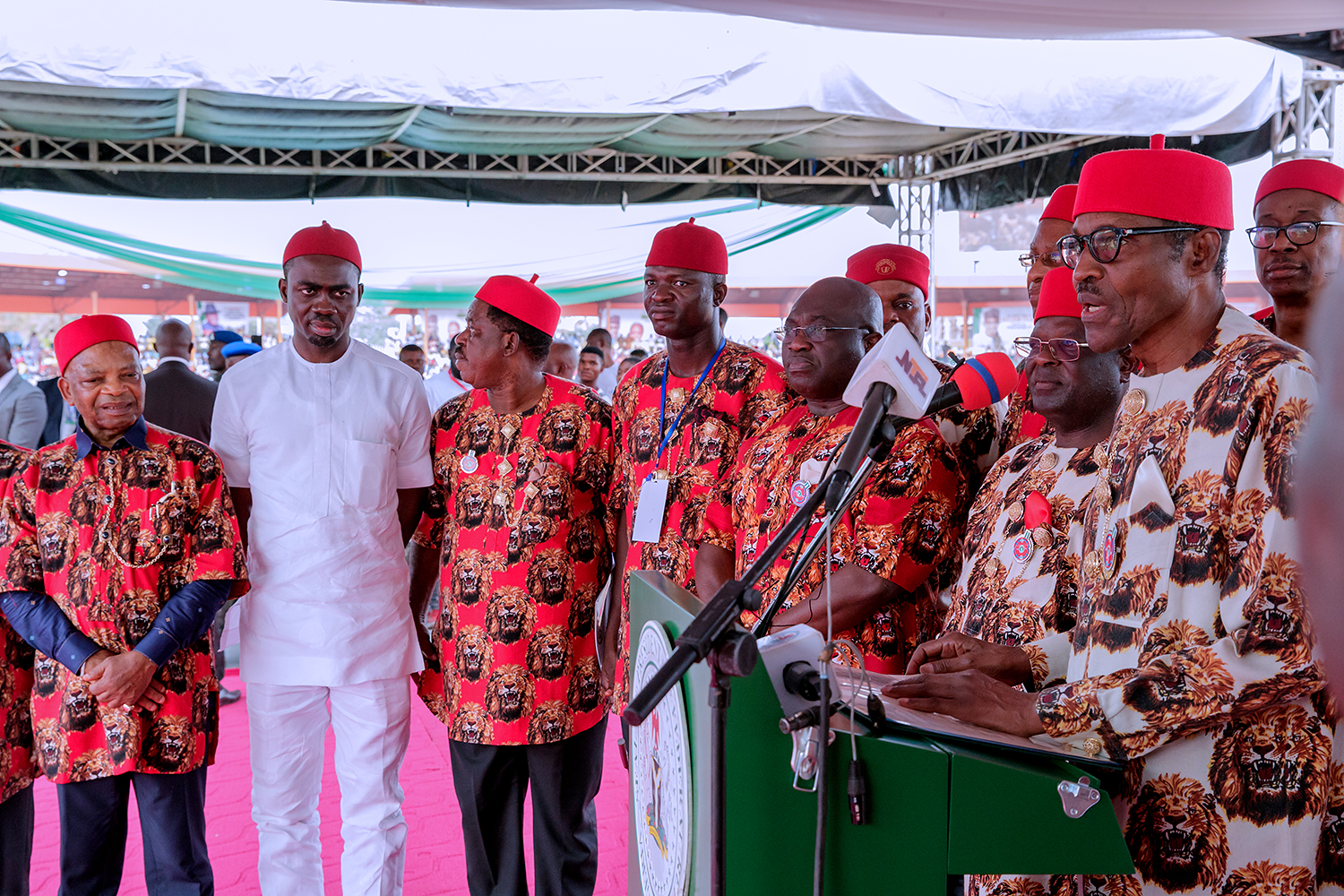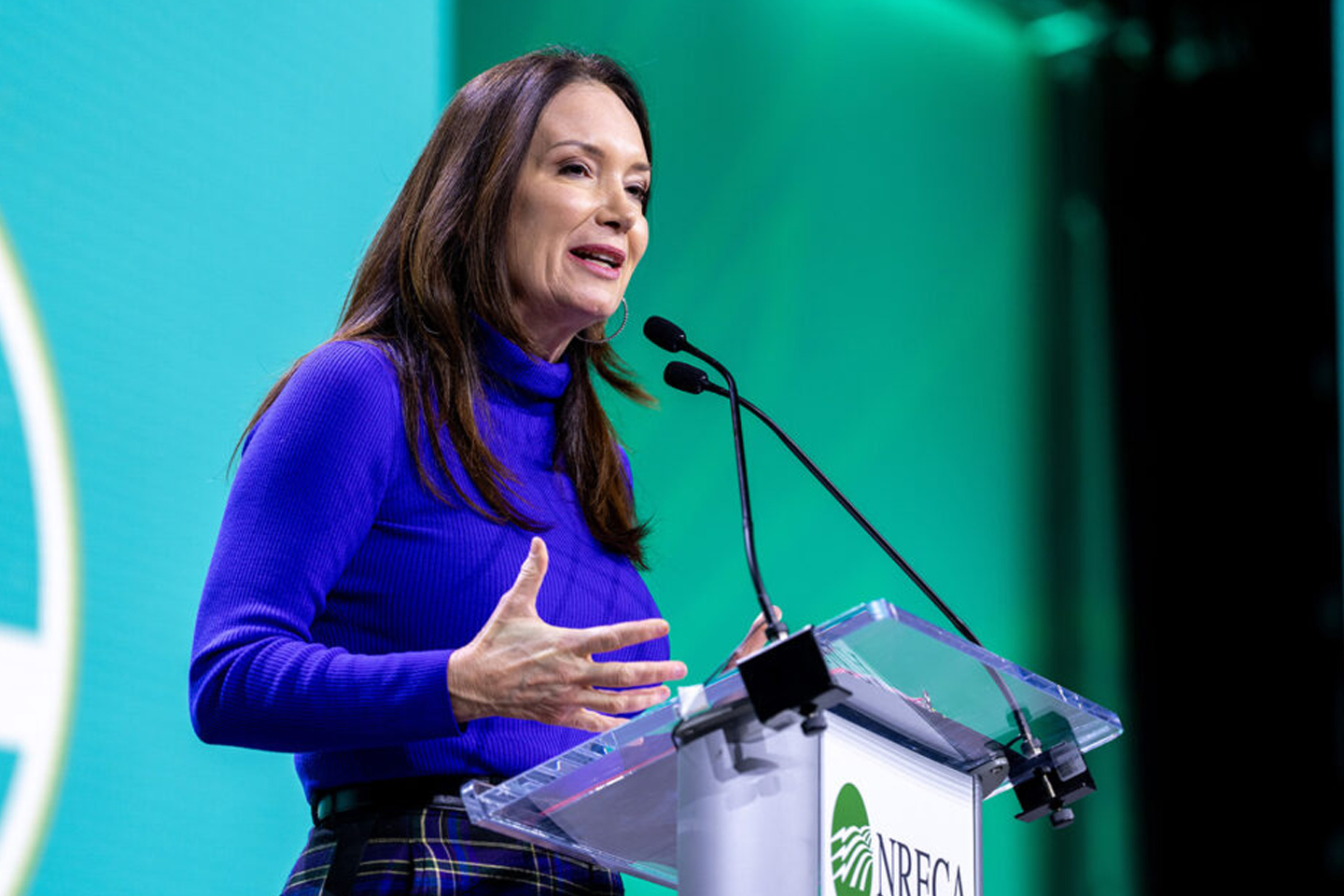News
2023: Igbos don’t want to be president under APC (Part 1)

- Burna Boy, the Spotlight, and the Cost of Arrogance - November 27, 2025
- Bizarre Epstein files reference to Trump, Putin, and oral sex with ‘Bubba’ draws scrutiny in Congress - November 14, 2025
- USDA head says ‘everyone’ on SNAP will now have to reapply - November 14, 2025
News
Bizarre Epstein files reference to Trump, Putin, and oral sex with ‘Bubba’ draws scrutiny in Congress

The latest tranche of emails from the estate of late convicted pedophile Jeffrey Epstein includes one that contains what appear to be references to President Donald Trump allegedly performing oral sex, raising questions the committee cannot answer until the Department of Justice turns over records it has withheld, says U.S. Rep. Robert Garcia, the top Democrat on the House Oversight Committee.
Garcia insists the Trump White House is helping block them.
In a Friday afternoon interview with The Advocate, the out California lawmaker responded to a 2018 exchange, which was included in the emails released, between Jeffrey Epstein and his brother, Mark Epstein. In that message, Mark wrote that because Jeffrey Epstein had said he was with former Trump adviser Steve Bannon, he should “ask him if Putin has the photos of Trump blowing Bubba.”
“Bubba” is a nickname former President Bill Clinton has been known by; however, the email does not clarify who Mark Epstein meant, and the context remains unclear.
- Burna Boy, the Spotlight, and the Cost of Arrogance - November 27, 2025
- Bizarre Epstein files reference to Trump, Putin, and oral sex with ‘Bubba’ draws scrutiny in Congress - November 14, 2025
- USDA head says ‘everyone’ on SNAP will now have to reapply - November 14, 2025
News
USDA head says ‘everyone’ on SNAP will now have to reapply

Agriculture Secretary Brooke Rollins on Thursday said the Trump administration is planning to have all Supplemental Nutritional Assistance Program (SNAP) beneficiaries reapply for the program due to alleged fraud.
The secretary said after receiving data on SNAP recipients from 29 red states that “186,000 deceased men and women and children in this country are receiving a check.”
“Can you imagine when we get our hands on the blue state data what we’re going to find?” she asked during a Thursday appearance on Newsmax’s “Rob Schmitt Tonight.”
“It’s going to give us a platform and a trajectory to fundamentally rebuild this program, have everyone reapply for their benefit, make sure that everyone that’s taking a taxpayer-funded benefit through SNAP or food stamps, that they literally are vulnerable, and they can’t survive without it,” she added.
Every state has a periodic recertification process that requires SNAP or food stamp recipients to update their whereabouts and earnings, according to the Department of Agriculture (USDA). Most municipalities require updated data every six to 12 months.
“Secretary Rollins wants to ensure the fraud, waste, and incessant abuse of SNAP ends,” a USDA spokesperson said in a statement to The Hill. “Rates of fraud were only previously assumed, and President Trump is doing something about it. Using standard recertification processes for households is a part of that work. As well as ongoing analysis of State data, further regulatory work, and improved collaboration with States. “
Earlier this month, food stamps were threatened amid the government shutdown as the Trump administration argued against using contingency funds to fuel the welfare program.
- Burna Boy, the Spotlight, and the Cost of Arrogance - November 27, 2025
- Bizarre Epstein files reference to Trump, Putin, and oral sex with ‘Bubba’ draws scrutiny in Congress - November 14, 2025
- USDA head says ‘everyone’ on SNAP will now have to reapply - November 14, 2025
News
Trump orders Bondi to investigate Epstein’s ties to Clinton and other political foes

NEW YORK (AP) — Acceding to President Donald Trump’s demands, U.S. Attorney General Pam Bondi said Friday that she has ordered a top federal prosecutor to investigate sex offender Jeffrey Epstein’s ties to Trump political foes, including former President Bill Clinton.
Bondi posted on X that she was assigning Manhattan U.S. Attorney Jay Clayton to lead the probe, capping an eventful week in which congressional Republicans released nearly 23,000 pages of documents from Epstein’s estate and House Democrats seized on emails mentioning Trump.
Trump, who was friends with Epstein for years, didn’t explain what supposed crimes he wanted the Justice Department to investigate. None of the men he mentioned in a social media post demanding the probe has been accused of sexual misconduct by any of Epstein’s victims.
Hours before Bondi’s announcement, Trump posted on his Truth Social platform that he would ask her, the Justice Department and the FBI to investigate Epstein’s “involvement and relationship” with Clinton and others, including former Treasury Secretary Larry Summers and LinkedIn founder and Democratic donor Reid Hoffman.
Trump, calling the matter “the Epstein Hoax, involving Democrats, not Republicans,” said the investigation should also include financial giant JPMorgan Chase, which provided banking services to Epstein, and “many other people and institutions.”
“This is another Russia, Russia, Russia Scam, with all arrows pointing to the Democrats,” the Republican president wrote, referring to special counsel Robert Mueller’s investigation of alleged Russian interference in Trump’s 2016 election victory over Bill Clinton’s wife, former Secretary of State Hillary Clinton.
Asked later Friday whether he should be ordering up such investigations, Trump told reporters aboard Air Force One: “I’m the chief law enforcement officer of the country. I’m allowed to do it.”
In a July memo regarding the Epstein investigation, the FBI said, “We did not uncover evidence that could predicate an investigation against uncharged third parties.”
The president’s demand for an investigation — and Bondi’s quick acquiescence — is the latest example of the erosion of the Justice Department’s traditional independence from the White House since Trump took office.
It is also an extraordinary attempt at deflection. For decades, Trump himself has been scrutinized for his closeness to Epstein — though like the people he now wants investigated, he has not been accused of sexual misconduct by Epstein’s victims.
None of Trump’s proposed targets were accused of sex crimes
- Burna Boy, the Spotlight, and the Cost of Arrogance - November 27, 2025
- Bizarre Epstein files reference to Trump, Putin, and oral sex with ‘Bubba’ draws scrutiny in Congress - November 14, 2025
- USDA head says ‘everyone’ on SNAP will now have to reapply - November 14, 2025
-

 Anthony Obi Ogbo10 hours ago
Anthony Obi Ogbo10 hours agoBurna Boy, the Spotlight, and the Cost of Arrogance
-

 News2 weeks ago
News2 weeks agoBizarre Epstein files reference to Trump, Putin, and oral sex with ‘Bubba’ draws scrutiny in Congress
-

 Lifestyle2 weeks ago
Lifestyle2 weeks agoKaduna Governor Commissions Nigeria’s First 100-Building Prefabricated Housing Estate
-

 News2 weeks ago
News2 weeks agoUSDA head says ‘everyone’ on SNAP will now have to reapply
-

 News2 weeks ago
News2 weeks agoTrump orders Bondi to investigate Epstein’s ties to Clinton and other political foes












